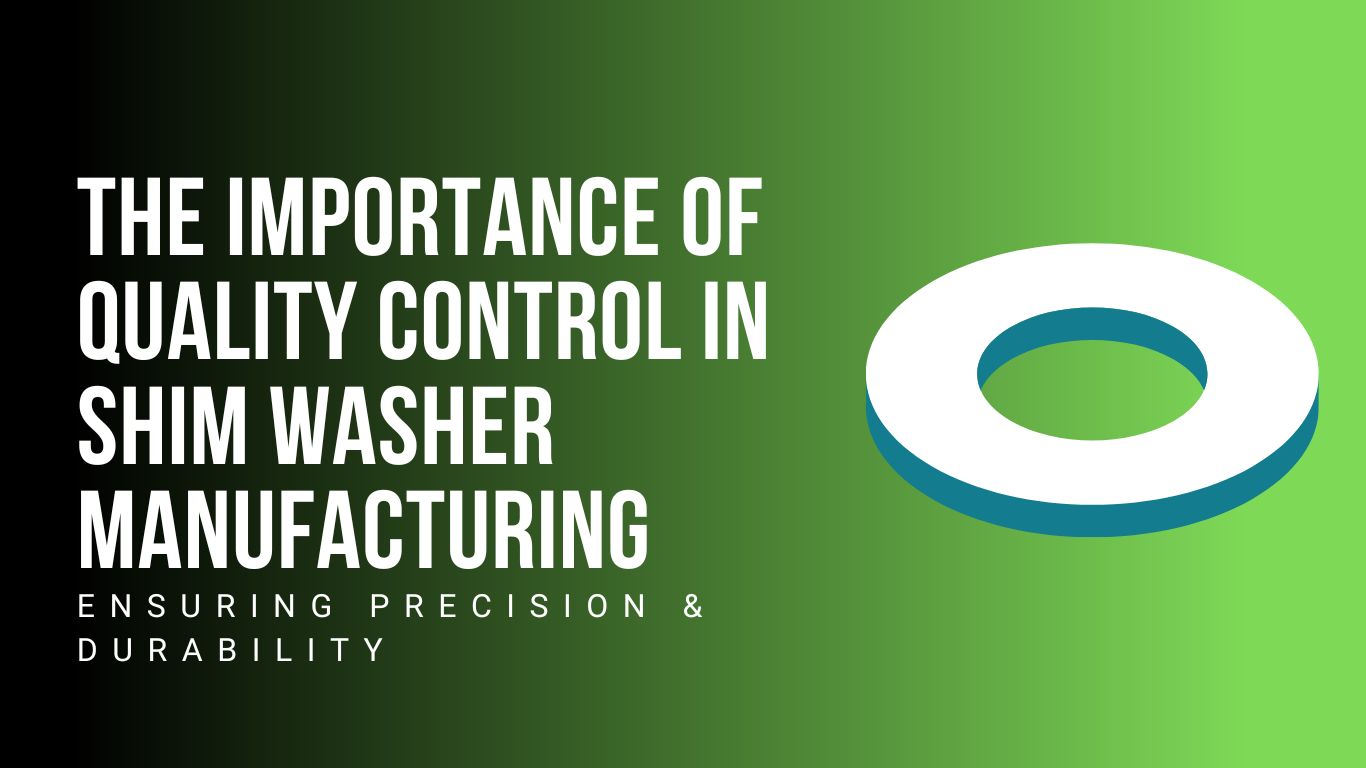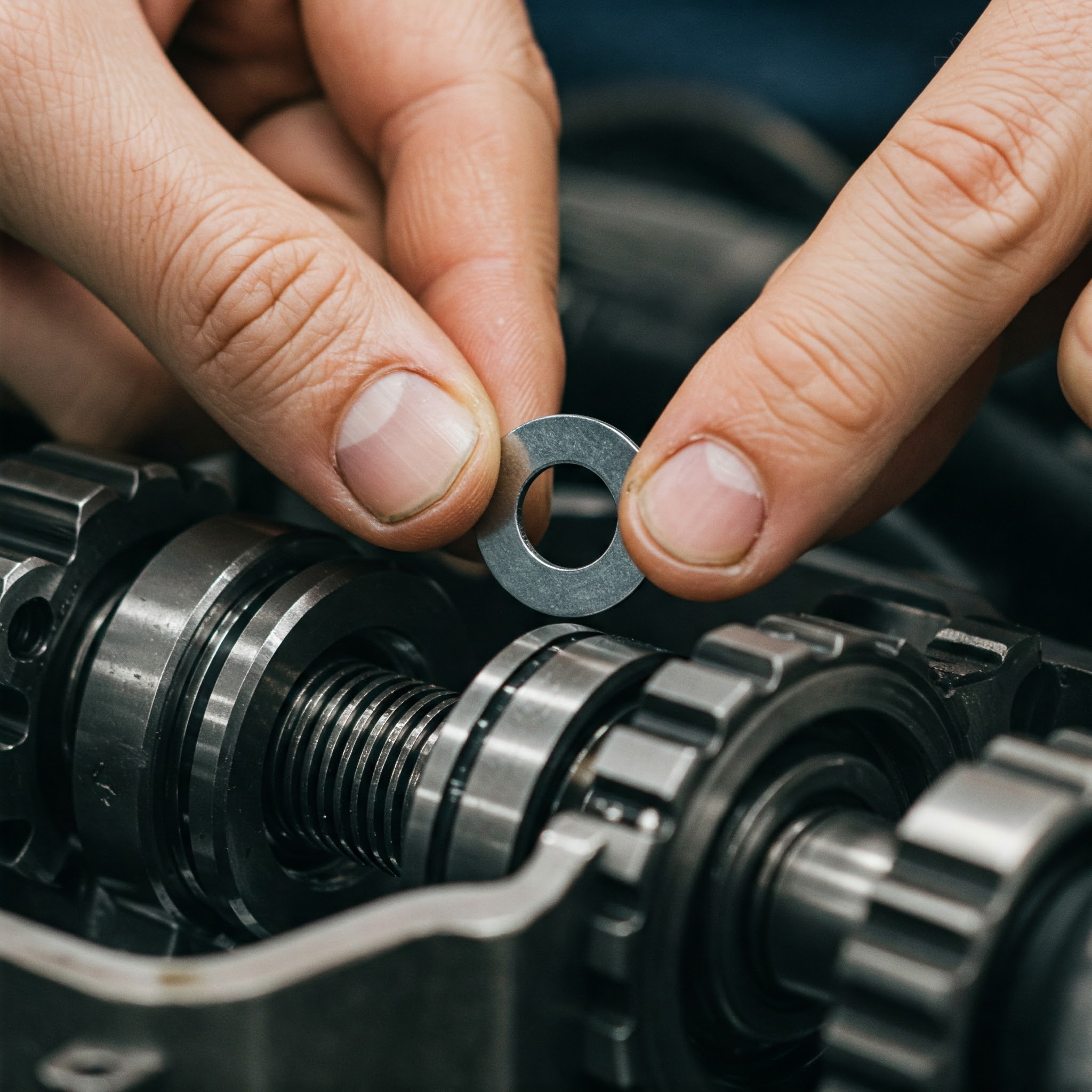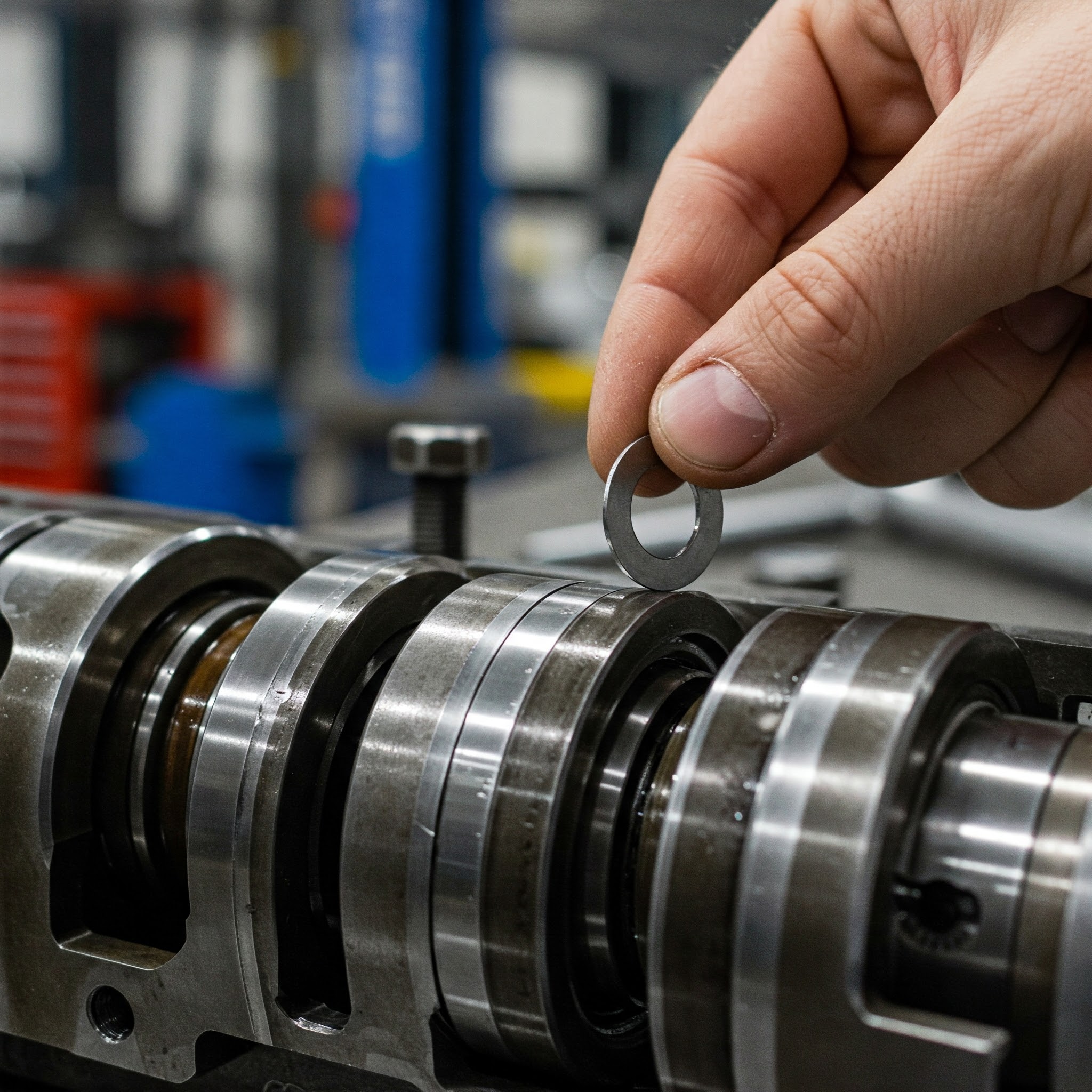The Importance of Quality Control in Shim Washer Manufacturing | Ensuring Precision & Durability

If you work in industries that rely on shim washers, you understand how crucial it is for them to function perfectly. Whether used in construction, automotive, or machinery, shim washers play a vital role in securing components and maintaining precision. That’s why quality control in shim washer manufacturing is so important.
In this article, I’ll dive deep into why quality control is crucial for shim washers and how it ensures their performance, durability, and overall effectiveness in various applications. Let’s explore how meticulous checks throughout the manufacturing process guarantee a reliable and precise product.
Table of Contents
- What is Quality Control in Shim Washer Manufacturing?
- Why is Quality Control Crucial in Shim Washer Manufacturing?
- Key Quality Control Methods in Shim Washer Manufacturing
- How Quality Control Affects the Performance of Shim Washers
- Challenges in Shim Washer Manufacturing and Quality Control
- Best Practices for Maintaining High-Quality Standards in Shim Washer Manufacturing
- Conclusion
What is Quality Control in Shim Washer Manufacturing?
Quality control in shim washer manufacturing refers to the systematic process of checking and ensuring that the shim washers meet specific design and performance standards. It involves testing raw materials, inspecting the production process, and conducting rigorous post-production tests. Every shim washer that leaves the factory floor must meet stringent standards for size, thickness, material integrity, and functionality.
Some of the critical aspects of quality control in shim washer manufacturing include:
Material inspection: Verifying that the materials used are of high quality and suitable for the intended application.
Dimensional accuracy: Ensuring that each shim washer meets precise size and thickness specifications.
Strength testing: Confirming that the shim washers are strong enough to withstand pressure, wear, and other stressors.
Durability testing: Checking that the shim washers can endure over time without degradation in performance.
By implementing comprehensive quality control at each step of the manufacturing process, manufacturers can produce shim washers that perform reliably in demanding applications.

Why is Quality Control Crucial in Shim Washer Manufacturing?
Without proper quality control, even the most high-quality materials and well-designed processes can result in substandard shim washers. Here’s why quality control is essential:
Ensures Reliability: Shim washers are often used in critical applications where failure can lead to significant damage or accidents. Proper quality control ensures they function as intended, even under high pressure or extreme conditions.
Maintains Precision: Shim washers must have exact measurements to properly support machinery and prevent movement or misalignment. Any variation in thickness, diameter, or material composition can cause operational issues.
Reduces Costs in the Long Run: While implementing quality control requires an investment of time and resources, it helps prevent costly mistakes such as defective products, rework, or warranty claims.
Boosts Customer Satisfaction: Clients and industries demand consistent, reliable products. By ensuring your shim washers meet the highest quality standards, you can maintain a strong reputation and earn repeat business.
Meets Industry Standards: Many industries have strict regulations and standards for components used in machinery and construction. Shim washers must adhere to these standards to be compliant, and quality control helps guarantee this.
Key Quality Control Methods in Shim Washer Manufacturing
To ensure the highest quality shim washers manufacturers rely on several key methods:
Raw Material Inspection: Before the manufacturing process begins, the raw materials used to make shim washers are inspected for defects, purity, and consistency. Whether it’s steel, brass, or stainless steel, the material must meet specific requirements to ensure strength and longevity.
Visual and Dimensional Inspection: Shim washers are carefully inspected for visible defects like scratches, dents, or cracks. A dimensional check is performed to ensure that each washer is made to the exact specifications for diameter, thickness, and shape.
Tensile Testing: This process involves stretching the material of the shim washer until it deforms to test its strength. Tensile testing helps determine the maximum load a shim washer can withstand before failure.
Hardness Testing: Hardness tests measure the resistance of the shim washer material to deformation under pressure. The right hardness ensures the washer maintains its shape and functionality under load.
Corrosion Resistance Testing: If shim washers are used in environments prone to moisture, salt, or chemicals, corrosion resistance is critical. These washers are exposed to harsh conditions to determine their durability over time.
Load Testing: Testing how much weight or pressure the shim washer can handle without deformation ensures its ability to perform in real-world applications.
Batch Testing: In high-volume production, it’s crucial to perform random checks from every batch to verify that the entire production runs at the same high quality.

How Quality Control Affects the Performance of Shim Washers
Effective quality control directly impacts the performance of shim washers in multiple ways:
Precision Fit: With strict dimensional checks, each shim washer fits its intended application perfectly. This precision helps ensure proper alignment and function, preventing damage to other components.
Durability: By testing for strength, hardness, and resistance, quality control ensures that the shim washers can handle pressure, temperature fluctuations, and wear over time, ultimately increasing their lifespan.
Consistency: With regular quality checks, each batch of shim washers meets the same high standards, such as hex washers , self locking washers and many more, offering consistent performance across the board.
Safety: For industries such as automotive or aerospace, safety is paramount. Shim washers that undergo stringent quality control can withstand extreme conditions, reducing the risk of failure or malfunction.
Challenges in Shim Washer Manufacturing and Quality Control
While shim washer manufacturing is a precise and detailed process, it does come with its own set of challenges:
Material Variability: Variations in the raw materials used for manufacturing shim washers can impact the final product. For example, slight changes in the alloy mix can affect hardness and corrosion resistance. Quality control helps detect these inconsistencies early in the process.
Machining Accuracy: Achieving precise tolerances in shim washers can be difficult, especially with small or intricate designs. Any errors in machining can lead to washers that don’t meet the required specifications.
Environmental Factors: External factors like temperature, humidity, and dust can affect the quality of both the raw materials and the manufacturing process. Maintaining a controlled production environment is key to ensuring high-quality results.
Cost vs. Quality Balance: Some manufacturers may be tempted to cut costs by skipping certain quality checks or using cheaper materials.
However, this can negatively affect the final product's performance and reliability, making it essential to strike a balance between cost and quality.

Best Practices for Maintaining High-Quality Standards in Shim Washer Manufacturing
To ensure your shim washers meet the highest quality standards, follow these best practices:
Implement Regular Inspections: Regular inspections at every stage of production—from material selection to final testing—ensure that the shim washers meet strict standards.
Use Automated Testing Systems: Invest in automated systems that can quickly and accurately test critical properties like size, strength, and corrosion resistance. Automation helps ensure consistency and reduces human error.
Adopt Lean Manufacturing Techniques: Streamlining your manufacturing process through lean techniques can reduce waste and increase production efficiency while maintaining quality.
Train Your Workforce: Ensure that your team is trained in proper quality control procedures. Skilled employees are more likely to catch defects before they affect the final product.
Work with Reliable Suppliers: Partnering with trusted suppliers for raw materials helps ensure the consistency and quality of your shim washers.
Continuous Improvement: Regularly review and update your quality control processes to ensure they remain effective and efficient. Continuous improvement is key to maintaining high standards over time.
Conclusion
Quality control is essential in shim washer manufacturing to ensure that each product meets the exact specifications required for precision, durability, and performance. From raw material inspection to load testing, every step of the process plays a vital role in producing reliable and high-quality shim washers. By adhering to strict quality control methods, manufacturers can deliver products that not only meet industry standards but exceed customer expectations.
So, the next time you're working with shim washers, remember that the reliability and performance of these small but crucial components depend on the rigorous quality control processes they undergo. Whether you're using machined washers , industrial washers , wedge lock washers, spring lock washers, or even fender washers, high-quality shim washers ensure your machinery and equipment work smoothly and safely.
About Sachin Shim
Our range of shim washers includes machined washers , industrial washers , ogee washers , tab washers , conical washers , sealing washers , and more. Designed for various applications, they ensure precise alignment, secure fastening, and durability in industries like aerospace, automotive, construction, and manufacturing. Whether you need industrial washers for heavy machinery, sealing washers for fluid systems, or ogee, tab, and conical washers for specialized uses, our selection guarantees optimal performance.
Author
Meet Sachin, our expert author in industrial materials with a deep understanding of stainless steel shims, bolts, and shim washers. With years of experience, Sachin brings valuable insights and expertise to this guide, making her a trusted source for all things related to washers. Join us as we delve into the art of crafting washers with Sachin leading the way.
List Other similar blogs







